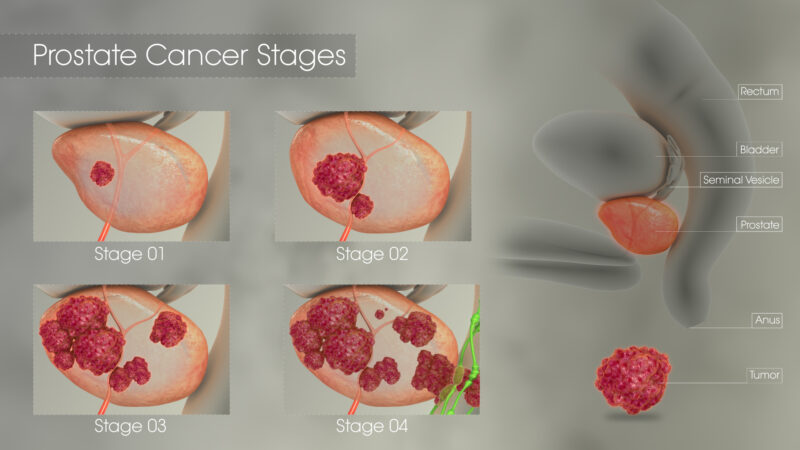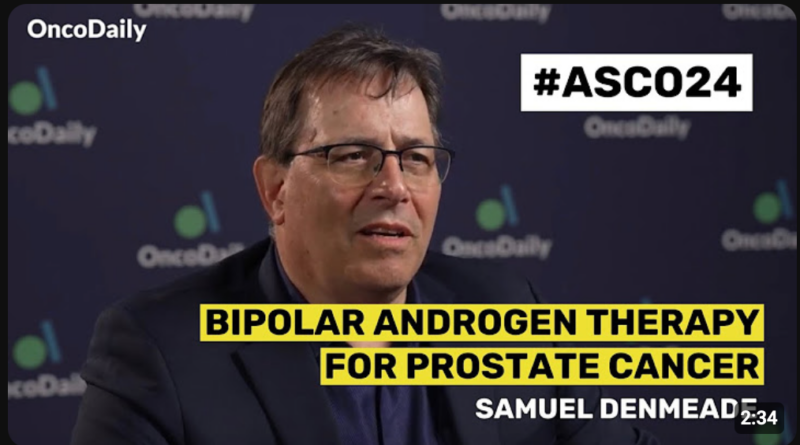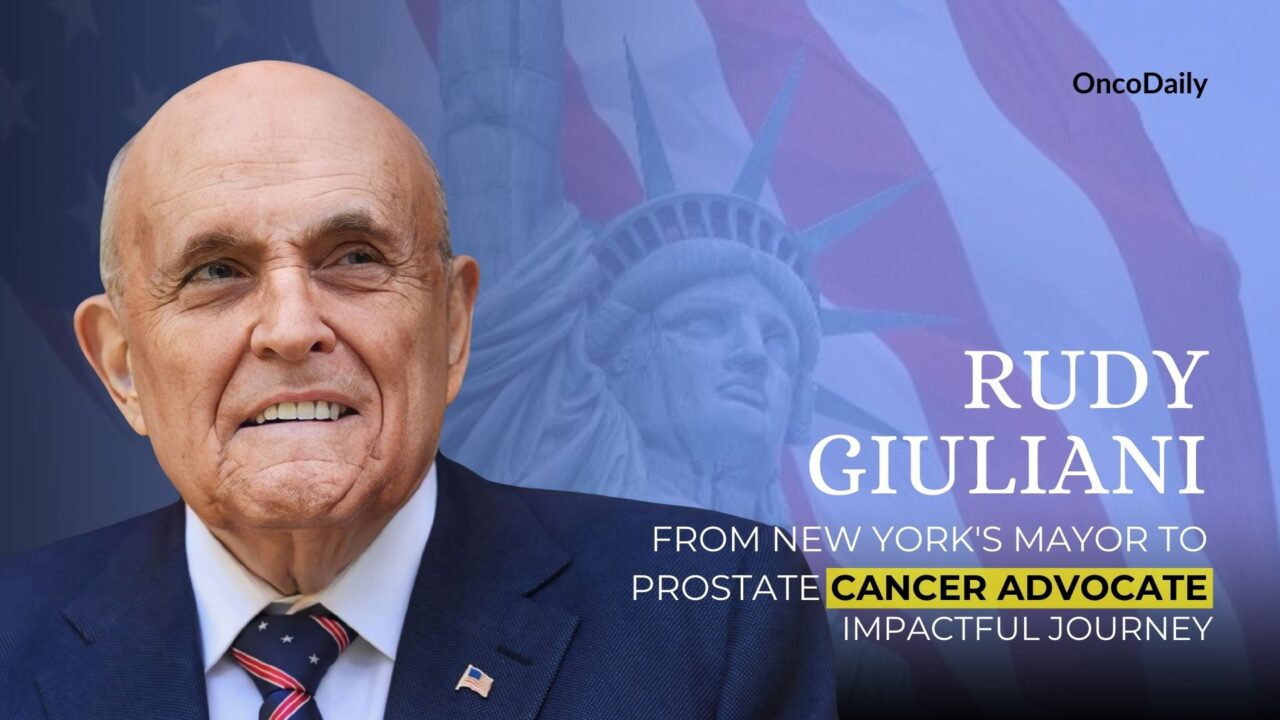Rudy Giuliani, the former mayor of New York City and a prominent political figure, was diagnosed with prostate cancer in 2000 during a routine physical examination. His diagnosis came at a pivotal time as he was preparing for a Senate campaign against Hillary Clinton. Despite the potential impact on his political ambitions, Giuliani publicly announced his condition, stating that it was treatable and emphasizing the importance of early detection through PSA testing.
Giuliani chose a combination of radioactive seed implantation and external radiation for treatment, which he later described as a decision made to minimize side effects compared to surgery. He faced challenges during his treatment but emerged cancer-free five years later, attributing his experience with cancer to enhancing his leadership capabilities, particularly in the face of crises such as the September 11 attacks.
His battle with prostate cancer not only shaped his personal outlook but also transformed him into a public advocate for cancer awareness. Giuliani became the honorary chairman of the National Prostate Cancer Coalition, encouraging men to seek early testing and support.
How Did Rudy Giuliani Get Diagnosed with Prostate Cancer?
Ruddy Giuliani was diagnosed with caner during routing checkup screening. He underwent a PSA (prostate-specific antigen) blood test about two and a half weeks prior to his announcement, which is a standard screening method for prostate cancer in men, particularly those over 50 or at higher risk due to family history. His father had died from prostate cancer, adding a personal urgency to his health monitoring.
Symptoms
Prostate cancer often progresses without any obvious symptoms, which can lead to late diagnoses. This lack of symptoms is a significant challenge, as many patients are unaware they have the disease until it has advanced considerably. Some common nonspecific symptoms that can occur later include fatigue, unexplained weight loss, or persistent pain, which can easily be mistaken for other benign conditions
What Were Rudy Giuliani’s Initial Reactions to His Diagnosis?
Rudy Giuliani’s diagnosis of prostate cancer prompted a profound emotional response and a significant shift in his mindset. Initially shocked by the news, he later expressed that facing his mortality brought him peace and clarity. Giuliani became a vocal advocate for prostate cancer awareness, emphasizing the importance of discussing fears associated with the disease. He stated,
“Talk about it. I always find that when there are things that I’m afraid of, if I talk about them, all of a sudden, I’m much less afraid of them.”
His experience led him to highlight the survival rates in the U.S., reflecting gratitude for his recovery and a commitment to encouraging others to seek early detection and treatment.
What was the Prognosis?
The prognosis for early-stage prostate cancer is generally favorable. According to statistics, about 90% of men diagnosed with localized prostate cancer survive at least five years post-diagnosis, and 63% live for at least ten year. In contrast, Giuliani’s experience aligns with these figures; he reported being cancer-free five years after his diagnosis and has since become an advocate for prostate cancer awareness. Overall, Giuliani’s early detection and proactive treatment decisions reflect the positive outcomes associated with timely intervention in prostate cancer cases.
What Treatments Did Rudy Giuliani Undergo?
Rudy Giuliani opted for a combination of treatments for his prostate cancer, which was diagnosed in its early stages. Initially, he underwent hormone therapy with Lupron to reduce testosterone levels.
Prostate Surgery and Radiation Therapy
Following hormone therapy, Giuliani opted for brachytherapy, which involves the implantation of small radioactive pellets (or seeds) directly into the prostate. This method allows for targeted radiation delivery to cancerous cells while minimizing exposure to surrounding healthy tissue. The radioactive seeds emit radiation over time, effectively destroying cancer cells. In conjunction with brachytherapy, he also received external beam radiation therapy (EBRT). This treatment involves directing high-energy radiation from outside the body at the tumor site, typically administered five days a week over several weeks. This method delivers radiation from outside the body using focused beams, such as X-rays. Advanced techniques like Intensity-Modulated Radiation Therapy (IMRT) allow for precise targeting of the tumor, adjusting the intensity and shape of the beams to maximize dose delivery to cancer cells while protecting surrounding tissues like the bladder and rectum.
How Did Rudy Giuliani Balance His Career During Treatment?
During his battle with prostate cancer, Rudy Giuliani maintained an active political presence, continuing his duties as Mayor of New York City while undergoing treatment. In April 2000, he publicly announced his diagnosis, stating that the cancer was in its early stages and emphasizing the availability of effective treatment options. He expressed optimism about his recovery and indicated that he would continue with his campaign activities, including attending meetings and town halls, where he received supportive responses from constituents.
Support from Family and Friends
During Rudy Giuliani’s prostate cancer treatment, his family and friends played a pivotal role in providing emotional and practical support. His wife, Donna Hanover, expressed her optimism about his recovery, stating, “I’m very optimistic about Rudy’s recovery. We have discussed this, and I will be very supportive of him in dealing with the choices he has to make”. This supportive environment was crucial as Giuliani navigated his diagnosis and treatment options. During Rudy Giuliani’s cancer treatment, his friends provided significant emotional support and encouragement. Close friends, including longtime associates and advisors, rallied around him during this challenging time. For instance, the Rev. Alan Placa, a friend since childhood, expressed his concern upon learning of Giuliani’s diagnosis, stating, “I think I was more upset by it than he was”
Mental and Emotional Challenges
Rudy Giuliani faced significant emotional challenges during his prostate cancer treatment, particularly fears of recurrence, compounded by the fact that his father had died from the same disease. He acknowledged the fear associated with a cancer diagnosis, stating, “I learned to tackle another kind of enemy: fear.” Despite this, Giuliani displayed resilience, continuing his mayoral duties and engaging with the community, which provided him with a sense of purpose amid the turmoil. His commitment to maintaining a busy schedule and connecting positively with constituents reflected his determination in both recovery and public service.
How Did Advocacy and Public Awareness Help Giuliani?
His advocacy efforts were particularly impactful given his public profile. By sharing his journey, Giuliani joined a list of prominent survivors, including figures like Joe Torre and Lance Armstrong, which helped raise the visibility of prostate cancer as a significant health issue. His statements often underscored the importance of early detection, as he reflected on how his father’s battle with the disease influenced his own perspective:
“It brings up very painful memories, and I miss my father every day of my life”
Public Speaking and Advocacy
Giuliani participated in various awareness campaigns where he shared his personal story to highlight the significance of early screening. He was quoted saying,
“A five-minute test saved my life…it can save yours”
This message aimed to motivate other men to prioritize their health. After announcing his diagnosis, Giuliani continued to hold town hall meetings where he discussed his health openly with constituents. He received standing ovations from attendees who appreciated his transparency and resilience during his treatment journey.
Collaborations with Health Organizations
Rudy Giuliani is the honorary chairman of the National Prostate Cancer Coalition (NPCC), focusing on raising awareness about prostate cancer. He has led initiatives like free PSA testing through mobile units to promote early detection, emphasizing that “a five-minute test saved my life…it can save yours.” Giuliani participates in public health campaigns, sharing his personal story to encourage men to prioritize their health. He collaborates with other prostate cancer survivors, including Joe Torre and Ben Stiller, to amplify their message about the importance of screenings and timely interventions.
What Is Rudy Giuliani’s Life Like After Prostate Cancer?
Following his treatment, Giuliani resumed his political career, maintaining a visible presence in public affairs. He continued to participate in various political activities, including campaigns and public speaking engagements aimed at raising awareness about prostate cancer. His experience with the disease fueled his advocacy efforts, particularly in promoting early detection and treatment options. He became a prominent figure in discussions surrounding prostate cancer, leveraging his platform to educate others.
Ongoing Health Challenges
Rudy Giuliani faces ongoing health challenges related to his prostate cancer treatment, including potential long-term side effects from hormone therapy and radiation, such as hot flashes and sexual dysfunction. While these side effects have largely resolved, he continues to manage the fear of cancer recurrence, influenced by his father’s death from the disease.
- Regular Check-ups: Giuliani emphasizes the importance of routine medical check-ups and screenings for early detection, especially for men over 50.
- Advocacy: As honorary chairman of the National Prostate Cancer Coalition, he actively raises awareness and educates others about prostate health.
- Open Communication: He encourages discussions about health fears, stating that talking about them helps reduce anxiety.
- Healthy Lifestyle: While specific details are limited, adopting a healthy diet and regular exercise are generally recommended for cancer survivors.
What Causes Prostate Cancer?
Prostate cancer risk is influenced by genetic factors, age, hormonal imbalances, lifestyle choices, and environmental factors. Key risk elements include a family history of cancer, older age, higher testosterone levels, poor diet, and obesity. Geographic variations also suggest environmental influences. Prevention strategies involve maintaining a healthy diet, regular exercise, and weight management. Genetic testing and individualized screening are recommended for those with higher risk profiles.
Genetic and Hormonal Factors
Genetics and hormonal factors play significant roles in influencing prostate cancer risk. Here’s a detailed look at these influences:
-
- Family History: Men with a family history of prostate cancer are at higher risk. Studies show that having a first-degree relative (father, brother) with prostate cancer increases the risk by about 2-3 times (: American Cancer Society, Prostate Cancer Risk Factors).
- Inherited Mutations: Genetic mutations, such as those in the BRCA2 gene, are linked to a higher risk of prostate cancer. Men with BRCA2 mutations are about 2-3 times more likely to develop prostate cancer compared to those without these mutations ( National Cancer Institute, Genetics of Prostate Cancer).
- Lynch Syndrome: This genetic disorder, associated with several types of cancer, also increases the risk of prostate cancer. Men with Lynch Syndrome have a lifetime risk of about 7-12% ( Genetics Home Reference, Lynch Syndrome).
- High Testosterone: Elevated levels of testosterone are linked to a higher risk of prostate cancer. Research suggests that high testosterone can promote the growth of prostate cancer cells. However, the relationship between testosterone levels and prostate cancer risk remains complex and under ongoing study ( Mayo Clinic, Prostate Cancer Risk Factors)
- Androgen Receptor Gene: Variations in the androgen receptor gene, which regulates the effects of testosterone, are associated with increased prostate cancer risk. Studies have shown that specific gene variants can modify the risk ( Journal of Clinical Oncology, Androgen Receptor Gene Variants and Prostate Cancer Risk).
Lifestyle and Environmental Factors
A diet high in red meat and processed foods is linked to a 20% increased risk of prostate cancer (American Institute for Cancer Research). In contrast, a diet rich in fruits, vegetables, and omega-3 fatty acids may reduce this risk (Journal of the National Cancer Institute). Regular exercise can lower the risk by 10-30% (Journal of Clinical Oncology). Smoking increases the likelihood of aggressive prostate cancer, with smokers about 30% more likely to develop it compared to non-smokers. Additionally, exposure to certain chemicals, like pesticides, may increase risk, though this is still being studied (Environmental Health Perspectives).

How Can Prostate Cancer Be Prevented?
Preventive measures for cancer focus on regular screenings, lifestyle adjustments, and dietary changes. Routine medical tests help detect cancers early, while quitting smoking and staying physically active lower risk factors. A diet rich in plant-based foods, along with limiting alcohol and red meat, is advised by cancer research organizations to reduce cancer incidence.
Regular Screenings and Early Detection
Regular PSA (Prostate-Specific Antigen) tests and screenings are essential for early detection of prostate cancer, particularly for men over 50 or those with a family history of the disease. PSA tests measure the level of a specific protein in the blood, and elevated levels can indicate prostate issues, including cancer.
Recognizing early symptoms, such as difficulty urinating, frequent urination (especially at night), or blood in the urine, is crucial. Early-stage prostate cancer often shows minimal symptoms, making regular screenings even more vital. Prompt medical consultation at the first sign of symptoms can lead to early diagnosis, improving treatment outcomes and reducing the risk of complications.

Lifestyle Changes
To reduce the risk of prostate cancer, maintain a healthy diet rich in fruits, vegetables, whole grains, and healthy fats while limiting red and processed meats. Foods like tomatoes, broccoli, and omega-3-rich fish are linked to lower risk (American Institute for Cancer Research). Regular exercise, aiming for at least 30 minutes most days, helps regulate hormones, reduce inflammation, and maintain a healthy weight (Journal of Clinical Oncology). Avoiding smoking is crucial, as it is associated with aggressive prostate cancer, and quitting improves overall health (Cancer Research UK). Lastly, limit alcohol consumption to moderation—up to one drink per day for men (American Cancer Society).
Dietary Recommendations
Incorporating antioxidants and fiber-rich foods can help reduce prostate cancer risk. Tomatoes, high in lycopene, may lower risk by up to 35% (National Cancer Institute). Berries are rich in antioxidants that combat cell damage, while fiber-rich whole grains like brown rice and oats are linked to lower cancer risks (American Institute for Cancer Research). Legumes, such as beans and lentils, provide fiber and phytoestrogens that may inhibit cancer growth. Healthy fats, particularly omega-3 fatty acids from fatty fish, can reduce the risk of prostate cancer death by 26% (Harvard Medical School). Nuts and seeds offer additional healthy fats and fiber, and green tea contains catechins that inhibit cancer growth (UCLA). Cruciferous vegetables like broccoli and cauliflower also have protective effects against cancer (Johns Hopkins Medicine).
FAQs
What type of cancer was Rudy Giuliani diagnosed with?
Rudy Giuliani was diagnosed with prostate cancer, which was caught in its early stages through a routine PSA blood test.
What treatment options did Giuliani consider for his prostate cancer?
Giuliani considered several treatment options, including surgical removal of the prostate and radiation therapy. Ultimately, he opted for the implantation of radioactive seeds in conjunction with external beam radiation after undergoing hormone therapy with Lupron.
How did Giuliani handle his diagnosis publicly?
Giuliani publicly announced his diagnosis during a press conference, expressing optimism about his treatment options and recovery. He continued to fulfill his mayoral duties while undergoing treatment.
What side effects did Giuliani experience from his treatment?
He experienced side effects typical of prostate cancer treatments, such as hot flashes, weight gain, and sexual dysfunction, but reported that these side effects improved over time.
How has Giuliani contributed to prostate cancer awareness?
After his recovery, Giuliani became an advocate for prostate cancer awareness, serving as the honorary chairman of the National Prostate Cancer Coalition and participating in campaigns that promote early detection and screening.
What impact did his cancer experience have on Giuliani’s life?
Giuliani has stated that facing cancer made him more peaceful and appreciative of life, particularly during his leadership role following the September 11 attacks.
Is Giuliani still cancer-free?
As of five years post-treatment, Giuliani reported being cancer-free and continues to engage in advocacy efforts related to prostate health.
Why did Rudy Giuliani run for president in 2008?
Giuliani entered the 2008 presidential race focusing on national security and his experience as mayor during crises, particularly post-9/11. He aimed to position himself as a strong candidate on issues of terrorism and public safety, although his campaign ultimately struggled in early primaries.
What role did Giuliani play in Donald Trump’s presidency?
After supporting Trump during the 2016 campaign, Giuliani became a key advisor and later joined Trump’s legal team. He was involved in efforts to challenge the results of the 2020 presidential election, making numerous public appearances.
Written by Aharon Tsaturyan, MD


